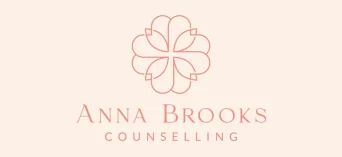How to improve communication in relationships: listening, expressing, and being heard
Good communication is the foundation of healthy relationships. Whether with a partner, family member, friend, or colleague, how we express ourselves and listen to others shapes the quality of our connections. When communication breaks down, misunderstandings arise, feelings get hurt, and distance can grow. But the good news is that communication is a skill we can all develop and improve.
Why good communication matters
When we communicate effectively, we:
- Feel heard and understood
- Reduce misunderstandings and conflict
- Build stronger, more trusting relationships
- Express our needs without guilt or fear
The key is not just in what we say but also in how we listen and respond.
- The art of listening
We often listen to respond rather than to truly understand. Active listening means being fully present and engaged when someone is speaking, rather than thinking about what we will say next.
Ways to improve listening:
- Give your full attention – Put down your phone, make eye contact, and show you are engaged.
- Reflect back – Repeat or summarise what the other person has said: “It sounds like you’re feeling frustrated because… does that sound right?”
- Validate their feelings – You don’t have to agree with someone to acknowledge their emotions: “I can see why that upset you.”
- Resist the urge to fix – Sometimes people just need to be heard rather than have solutions offered.
- Expressing yourself clearly and respectfully
Many communication issues arise when we struggle to express our thoughts and emotions clearly. Saying what we mean, in a way that can be received well, is key.
Ways to improve expression:
- Use "I" Statements – Instead of blaming, express how something affects you. For example, "I feel unheard when decisions are made without my input" instead of "You never listen to me!"
- Be specific – Vague complaints lead to confusion. Instead of "You’re always late!" try "I feel frustrated when we agree on a time and it’s not kept."
- Own your emotions – You are responsible for your feelings and reactions. "I feel anxious when our plans change at the last minute" acknowledges your emotions without blaming.
- Be mindful of tone and body language – Words are only part of communication. Your tone, facial expressions, and body language all send messages too.
- Navigating difficult conversations
Difficult conversations can be emotionally charged, but avoiding them can lead to resentment and misunderstanding. Approaching them with care can make a big difference.
Tips for handling difficult conversations:
- Choose the right time – When emotions are high, it may be best to pause and revisit the conversation when both people are calm.
- Stay on one topic – Bringing up multiple issues at once can be overwhelming and unproductive.
- Use a collaborative approach – Instead of placing blame, frame the discussion as a shared problem to solve together.
- Take breaks if needed – If a conversation becomes too intense, stepping away and returning later can prevent things from escalating.
Final thoughts
Communication is an ongoing process, and like any skill, it takes practice. The way we listen and express ourselves shapes the quality of our relationships. Small shifts in how we communicate can lead to greater connection, understanding, and trust.
If communication is a struggle in your relationships, therapy can offer a safe and supportive space to explore patterns, develop new skills, and create healthier ways of relating. If this sounds like something you’d like support with, feel free to reach out.
